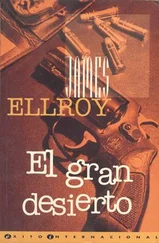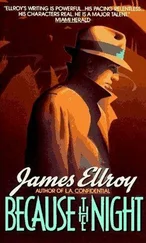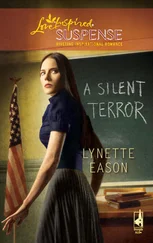Three days later, she gave me my formal reprimand: six months of silence. I smiled as my sentence was passed; it was a reprieve from my awful fears regarding the invisibility mission, and the opportunity to screen unlimited brain-movies.
Although my mother only intended for me to remain silent at home, I took her edict literally and took my silence everywhere I went. At school I would not speak, even when spoken to — I wrote out notes when teachers needed answers from me. This created a stir, and much speculation on my motives, the most common interpretation being that somehow I was protesting the war in Vietnam or expressing my solidarity with the Civil Rights movement. Since I was getting excellent grades on exams and written reports, my lack of speech was tolerated, although I was subjected to a battery of psychological tests. I rigged each test to show a completely different personality, flabbergasting school officials, who, after many failed attempts to get my mother to intervene, decided to let me graduate in June.
So now my classroom brain-movies were accompanied by the outright stares of my classmates, a number of whom thought I was “cool,” “trippy” and “avant-garde.” Breaking through seemingly impenetrable objects was the main theme, and the awed looks I was getting made me feel I could do anything .
Along with that feeling grew a bitter hatred for my mother. I took to prowling through her belongings, looking for ways to hurt her. One day I got an impulse to check out her medicine cabinet, and I found several prescription bottles of Phenobarbital. A light snapped on in my head, and I tore through the rest of her bedroom and bathroom. Underneath the bed, in a cardboard box, I got the confirmation I was seeking: empty prescription bottles of the sedative, scores of them, the dates on the labels going back to 1951. Inside the bottles were stuffed small pieces of paper covered with a tiny, indecipherable pencil scrawl.
Since I could not read my zombie-mother’s words, I had to make her speak them out loud. The following day, at school, I passed a note to Eddie Sheflo, a surfer who was rumored to “think Marty’s act was bitchen’.” The note read:
“Eddie—
Can you cop me a dollar roll of #4 Bennies?”
The big blond surfer refused the dollar bill I was holding out and said, “You got it, strong silent type.”
That afternoon, I substituted Benzedrine for Phenobarbital, and replaced the light bulb over my mother’s medicine cabinet with a dud. Both types of pills were small and white, and I hoped the dim light would add to the confusion.
I sat downstairs to await the result of my experiment. My mother came home from work at her usual time of 5:40, nodded hello, then ate her usual chicken-salad sandwich and went upstairs. I waited in my father’s favorite left-behind chair, absently perusing a stack of “Cougarman Comix.”
At 9:10, there was a thumping on the stairs, and then my mother was standing in front of me, sweaty, bug-eyed and trembling in her slip. I said, “Hitting the carrot juice, Mom?” and she grabbed at her heart, hyperventilating. I said, “Funny, it never affects Bugs Bunny this way,” and she started jabbering about sin and this awful boy she slept with on her birthday in 1939, and how she hated my father because he drank and was a quarter Jewish, and how we have to turn the lights off at night or the Communists will know what we’re thinking. I smiled, said, “Take two aspirin with a carrot-juice chaser,” and about-faced out of the house.
I prowled the neighborhood all night; then, at dawn, returned home. When I flicked on the living-room light, I saw red liquid dripping from a crack in the ceiling. I went upstairs to investigate.
My mother was lying dead in her bathtub. Her gashed arms were flopped over the sides, and the tub was full to the top with water and blood. A half-dozen empty Phenobarbital bottles were strewn across the floor, floating in inch-deep red water.
I skipped down the hall and called Emergency, telling them in an appropriately choked-up voice my address and that I had a suicide to report. While I waited for the ambulance, I gulped down big handfuls of my mother’s blood.
The Rosicrucians got the house, the car and all my mother’s money; I got a custodianship hearing. Since I was within six months of high-school graduation and my eighteenth birthday, a formal foster home was deemed a waste of time, and my twelfth-grade guidance counselor told the juvenile authorities that I was “too inward and disturbed” to be cut loose as an “emancipated minor.” My refusal to attend the funeral or contact my father in Michigan convinced him that I “needed discipline and guidance — preferably a male figure.” So the Juvenile Housing Board sent me to live with Walt Borchard.
Walt Borchard was an L.A. cop, a big, fat, good-natured man in his early fifties. He had spent most of his twenty-three years with the L.A.P.D. on the elementary-school lecture circuit, delivering cautionary tales on dope, perverts and the evils of the criminal life, showing little kids his .38, chucking them under the chin and admonishing them to be “straight shooters.” He was a widower with no children, and he lived in the largest apartment in a twelve-unit building that he owned. A one-room “bachelor” was always kept available for the homeless juveniles the housing board referred to him, and that twelve-by-eighteen crawl space a block from Hollywood Boulevard became my new home.
The previous tenant had been a hippie, and he left behind a deep-pile chartreuse rug, Beatles posters on the walls and a closetful of bell-bottoms, fringed vests and Day-Glo tennis shoes. “Acid head,” said “Uncle” Walt when I moved in. “Got the notion he could fly. Flapped his arms and jumped off the Taft Building, and you know what? He was wrong. Went out stoned, though. Coroner said he was on a snootful of shit. You ain’t got any crazy notions, have you?”
“I have vampire tendencies,” I said.
Uncle Walt laughed. “So do I. Matter of fact, last night I bit the girl downstairs in number four. Listen, Marty, just lay off the dope and be nice to the other tenants, go to school and keep your pad clean and we’ll get along great. The board’s paying me to have you here, and I ain’t looking to get rich, so I’ll kick back thirty scoots a week for you to mess around with, and I’ll keep you in groceries. You gotta observe curfew until your birthday, though, off the streets by eleven. Lots of nice necks to bite on the Boulevard, but wrap your biting up by 10:59. And if you need anything, you know where I am. I love to talk, and I ain’t bad at listening.”
The arrangement jelled. I now had a new neighborhood to learn, my very own safe harbor to return to and a new, glamorous aura at school: I was the guy who never shed a tear when he found his mother dead, the guy with his own “crib,” the guy who bent the administration to his will with his extended silence and who now teasel people with occasional one-liners like: “Blood reigns, come stains,” and “Shroud Shifter will prevail.” I felt like I was coming of age.
My life consisted of school and brain-movies, nighttime walks along the side streets bordering Hollywood Boulevard and captive hours spent listening to Uncle Walt Borchard’s homespun philosophy. His one-liners were less terse than mine, and he was considering publishing them in book form when he retired from the L.A.P.D. Among his most-repeated nuggets of wisdom were:
“God bless the queers — more women for the rest of us”;
“I wouldn’t want the niggers moving into the neighborhood, but I’ll be damned if I’ll do anything to keep ’em out; and if they do move in, I’ll be the first one to welcome ’em with a bucket of ribs and a big bottle of T-bird”;
Читать дальше












